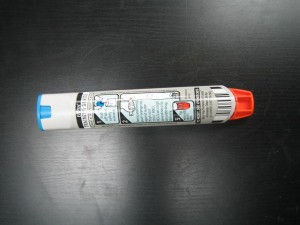Thunder Bay First Aid is the only provider that offers prospective trainees the easiest certification in the area. All classes are overseen by St Mark James instructors so you don’t have to worry about quality training; you’re sure to get the best. Students can enroll in cardiopulmonary resuscitation (CPR), first aid, and automated external defibrillation (AED) training programs at very affordable rates.
CPR, AED, and first aid training programs

Students can choose from three levels of CPR full training programs. All of the levels correspond to a specific workplace-approved certificate. Each of the levels includes basic first aid and AED training. AEDs are machines that detect heart rhythms and apply needed shock to the heart. Check out the list of available programs below.
- Standard Child care first aid and CPR
- Standard first aid and CPR
- Emergency Childcare first aid
- Emergency first aid
- Babysitting first aid and CPR
- Basic Marine first aid and CPR
- CPR A with AED
- CPR C with AED
- CPR HCP with AED
Other facts about Thunder Bay First Aid
Rates
Thunder Bay First Aid offers the cheapest training course rates for all classes. Rates include taxes, certification fees, and the use of training manuals and equipment. Students don’t have to worry about additional expenses on top of the enrolment fee.
Full refunds
If a student decides not to complete the training program, full refunds are given as long as the trainee gives a 72-hour notice beforehand.
Certification
St Mark James Training training certificates are valid for three years and awarded after the completion of a program. Students can renew current and expiring certifications through refresher programs held twice a week at Thunder Bay First Aid.
Facilities
All training facilities in Thunder Bay are high-end and outfitted with the latest training equipment. The centers are also spacious and well-maintained, and easily accessible by public and private transportation.
Did You Know?
Antibiotics and diarrhea
Diarrhea is usually caused by the intake of contaminated or inadequately prepared food. However, it can also be caused by antibiotic intake. Antibiotic-associated diarrhea is described as frequent, watery bowel movements after taking antibiotics. This kind of diarrhea usually clears up once the person stops taking the antibiotic. Colitis is a complication that can occur in response to the inflammation of the colon due to frequent bowel movements. People affected by this experience abdominal pain, bloody diarrhea, and fever. Mild diarrhea usually clears up in a few days while severe and persistent diarrhea with complications requires further medical management.
